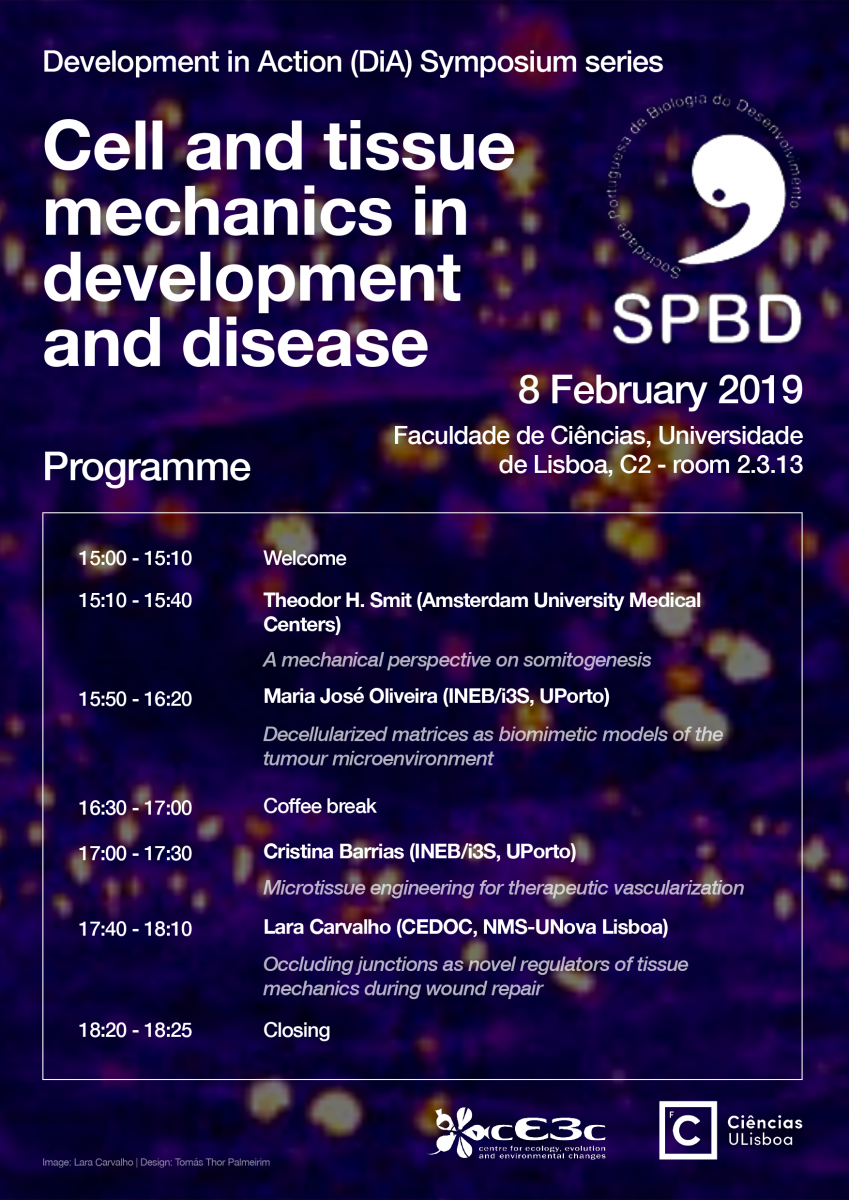Studying the spatial diversity of European food webs, drivers and implications for conservation
Por João Braga (Laboratoire d'Ecologie Alpine - Université Grenoble Alpes).
Por João Braga (Laboratoire d'Ecologie Alpine - Université Grenoble Alpes).
Por Mónica Cunha (Investigadora do INIAV IP, membro integrado do cE3c - CSES group, membro colaborador do BioISI, Professora Convidada da FCUL).
O primeiro estudo científico desenvolvido no PermaLab – um laboratório vivo de permacultura, situado no campus de Ciências ULisboa, será publicado no volume 212 da edição de março de 2019 do Journal of Cleaner Production, reforçando dessa forma a importância dos laboratórios vivos no contexto universitário.
Simpósio coorganizado pelo cE3c - Centro de Ecologia, Evolução e Alterações Ambientais. A entrada é livre.

Por Ana Sofia Rodrigues (Post-doc researcher NHS - cE3c).
Por Denis Bourguet (CBGP, INRA Montpellier).
O cE3c – Centro de Ecologia, Evolução e Alterações Ambientais está mais uma vez a organizar dois seminários avançados – Seminário I (1.º semestre, em curso) e Seminário II (a decorrer no 2.º semestre, candidaturas abertas) – no ano letivo 2018/2019 na Faculdade de Ciências da Universidade de Lisboa.
Nitrogen is an element essential to life. Since the discovery of nitrogen fixation to produce fertilizers, we were able to greatly increase agriculture yields. But we use to much fertilizers in agriculture, and add extra nitrogen by burning fossil fuels. All this extra nitrogen leaks to the environment, causing problems in Water, Air, Green-house gases, Ecosystems and Soil.
Produced within NitroPortugal, this video summarizes the modern-world issues with nitrogen, and proposes solutions to deal with it.
Por Reinaldo Pimentel (cE3c - GBA / Island Environmental Risks & Society - IERS).
"Até agora, os cientistas cidadãos das comunidades GROW implementaram/instalaram 2.000 sensores com o intuito de avaliar a humidade, temperatura e radiação solar do solo nos diferentes GROW Places. No próximo ano deverão ser implementados cerca de 10.000 sensores. Este é considerado o maior levantamento de dados de diversas propriedades do solo na Europa, realizado por cidadãos", escreve em artigo de opinião Gil Penha-Lopes, investigador do DBV Ciências ULisboa e cE3c.